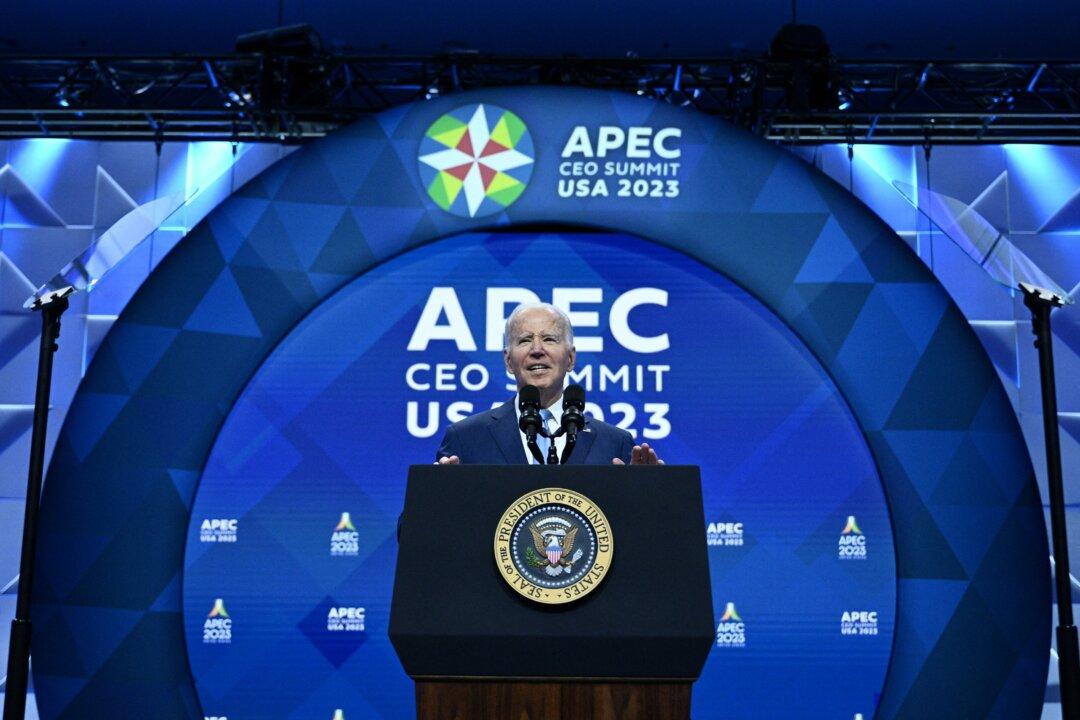The United States is a “Pacific power” and will remain “vital” to the future of the Asia-Pacific region, President Joe Biden said at the Asia-Pacific Economic Cooperation (APEC) CEO summit on Thursday.
“We aren’t going anywhere,” President Biden told business leaders at the APEC summit in San Francisco on Nov. 16, a day after his meeting with Chinese Communist Party (CCP) leader Xi Jinping.





